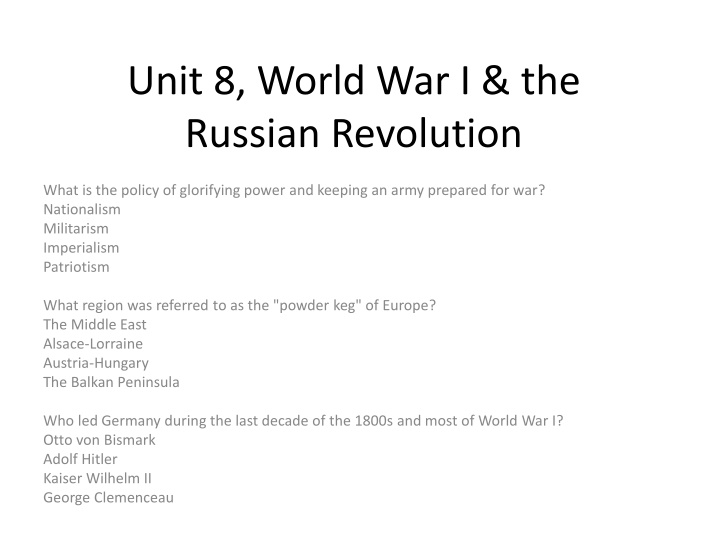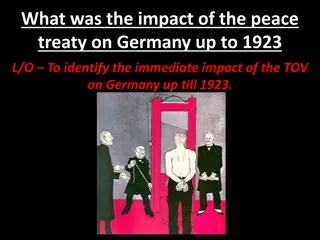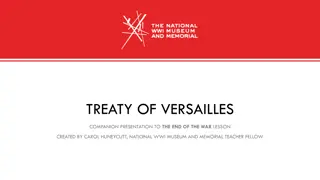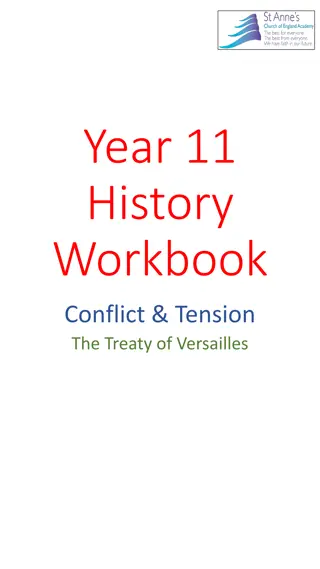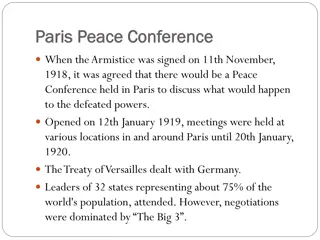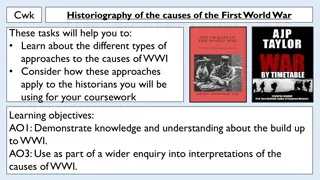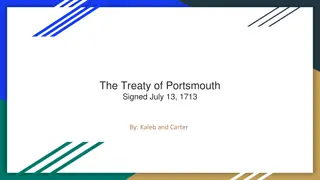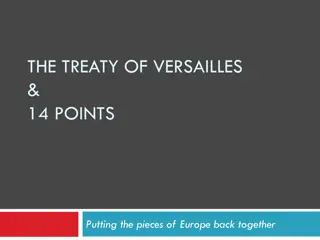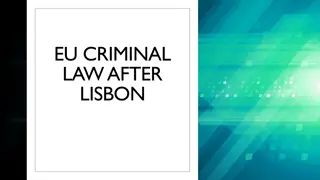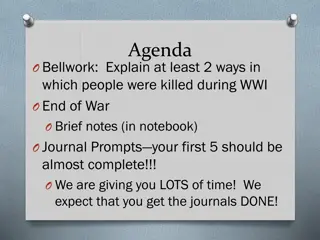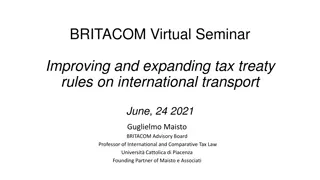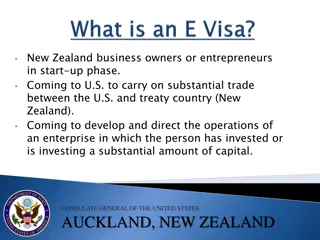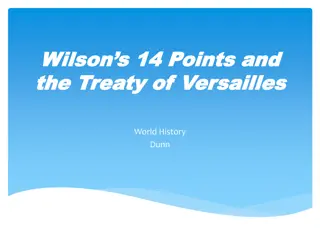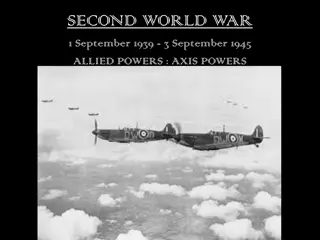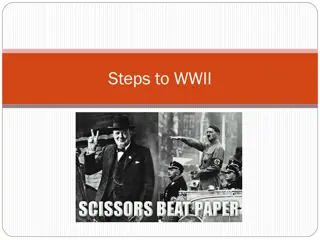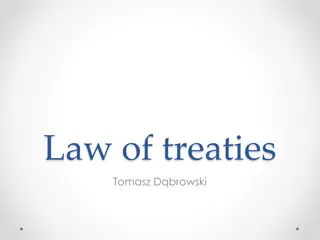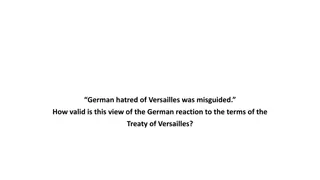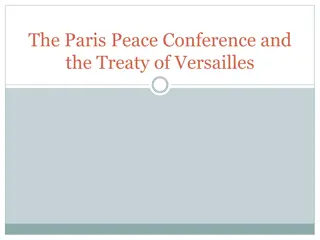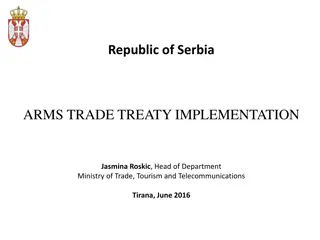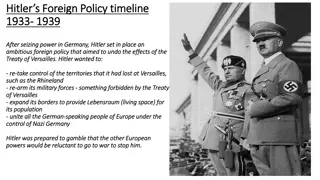World War I and the Treaty of Versailles: Key Events and Consequences
The policy of glorifying power and militarism, the tensions in the Balkan Peninsula, Germany's leadership, causes of the United States' entry into World War I, impact of unrestricted submarine warfare, transition to total war, the end of the war with an armistice, the Treaty of Versailles assigning blame to Germany, and the alliances shaping the war are highlighted in this historical overview.
Download Presentation

Please find below an Image/Link to download the presentation.
The content on the website is provided AS IS for your information and personal use only. It may not be sold, licensed, or shared on other websites without obtaining consent from the author.If you encounter any issues during the download, it is possible that the publisher has removed the file from their server.
You are allowed to download the files provided on this website for personal or commercial use, subject to the condition that they are used lawfully. All files are the property of their respective owners.
The content on the website is provided AS IS for your information and personal use only. It may not be sold, licensed, or shared on other websites without obtaining consent from the author.
E N D
Presentation Transcript
Unit 8, World War I & the Russian Revolution What is the policy of glorifying power and keeping an army prepared for war? Nationalism Militarism Imperialism Patriotism What region was referred to as the "powder keg" of Europe? The Middle East Alsace-Lorraine Austria-Hungary The Balkan Peninsula Who led Germany during the last decade of the 1800s and most of World War I? Otto von Bismark Adolf Hitler Kaiser Wilhelm II George Clemenceau
Why were Germany and Austria-Hungary known as Central Powers? because the war was fought on two fronts because of their combine because of their alliance in the ward armies because of their location in the heart of Europe Which nation's actions caused the United States to fight in World War I? Russia Mexico Germany Austria-Hungary What did the policy of unrestricted submarine warfare refer to? Britain's policy to sink any ship in German waters without warning Germany's policy to sink any ship in British waters without warning the U.S. Navy's warning of the type of warfare the Central Powers could expect Germany's decision to focus its resources on the waters surrounding Europe
What did the war become once the participating countries began devoting all of their resources to the war effort? industrial war world war total war uncontrolled war What action on November 11, 1918, brought World War I to an end? An armistice was signed. A surrender was given. A propaganda campaign was waged. The allies won a major battle. What were the Fourteen Points? parts of the "war guilt" clause a plan for the postwar world the constitution of the League of Nations the terms of surrender offered to Germany
Who was forced to assume sole responsibility for the war under the Treaty of Versailles? Germany Austria-Hungary Russia Italy Which countries made up Europe's Great Powers? Germany and France Great Britain, France, Germany, Austria-Hungary, Russia, and Italy Great Britain and Germany Great Britain, Austria-Hungary, Germany, Spain, Russia, Italy, and France Why did Bismark seek alliances that later became the Triple Alliance? to isolate France to expand Germany's boundaries to strengthen Germany's army all of the above
How did the Treaty of Versailles affect postwar Germany? It left a legacy of bitterness and hatred in the hearts of the German people. It stabilized the German economy and gave monetary aid to the nation. It left Germany in much the same state as it was before the war. It gave Germans the drive to rebuild their nation on a stronger foundation. What impact did the war have on the economy of Europe? It drained the treasuries of Europe. It enriched the treasuries of the Allied Powers. It speeded the industrialization of Europe. It gave women an opportunity to become heads of companies. Consider what you know about the two fronts of the war. What relationship existed between the battlefronts and the war deaths? The countries between the two fronts suffered the highest losses. The countries along the two fronts suffered the highest losses. The countries farthest from the two fronts suffered the highest losses. The location of the front had no effect on how high a country's losses were.
What is the most probable link between militarism and imperialism? As a country gains colonies, its military grows to protect them. As a country's military expands, the country wants colonies to recruit troops. As a country's colonies grow, the military stages training exercises there As the military expands, a country seeks colonies to prevent coups at home. What key factor led to the formation of the Triple Alliance and the Triple Entente? Germany's desire to isolate France and Britain's desire to remain dominant Germany's hostility toward France and Britain's allegiance to France Bismark's fear of France's army and Britain's fear of Germany's empire Germany and France's separate desires to gain control of the Balkans What event in Sarajevo ignited the Great War? an ultimatum presented to Serbia in response to royal assassinations the assassination of Archduke Franz Ferdinand and his wife Sophie Austria's rejection of Serbia's offer and declaration of war on Serbia Russia's mobilization of troops along the Austrian border
What was trench warfare intended to accomplish? to protect soldiers from enemy gun fire on the front lines to trap enemy soldiers in mud pits on the front lines to force enemy soldiers to pass through a "no man's land all of the above World War I was a "total war" in the sense that it brought great suffering to civilians. nations from all over the world were involved. new technologies played a large part in the war. the nations involved devoted all their resources to it. The system of rationing was designed to limit civilian antiwar activities. production of luxury items. purchases of consumer goods. the number of men needed in the civilian work force.
The purpose of propaganda during World War I was to censor the press. inform the public. expose antiwar activity. influence public opinion. The Zimmermann note, which pushed the United States to enter the war, exposed the German plan to make a truce with Russia. help Mexico regain U.S. territory. sink passenger ships without warning. plant German spies in the United States. The armistice signed near Paris in November 1918 brought an end to World War I. Kaiser Wilhelm's rule. the Second Battle of the Marne. Russia's involvement in the war.
Who were the Bolsheviks? soldiers in the White Army radical Russian Marxist revolutionaries members of the Duma, Russia's parliament followers of Rasputin What is a totalitarian state? a state in which the people have a direct say in their government a state in which the people elect representatives to the legislature a state in which the government controls every aspect of public and private life a state in which the working class is glorified and has the greatest voice in government How did czars Alexander III and Nicholas II deal with calls for reform? They immediately moved to enact reforms. They made a few reforms but not all. They resisted all efforts for reform. They appointed ministers to study reforms.
Which of the following did NOT happen as an immediate result of the Bolshevik Revolution? Factory control returned to the workers. Farmland was distributed among the peasants. A truce was signed with Germany. A totalitarian state was established. What impact did Russia's involvement in World War I have on the Russian government? It created a window for the Mensheviks to attempt a take over. It led to the establishment of the Duma as a voice for moderates. It revealed the weaknesses of czarist rule and military leadership. All of the above are true. How did life change for Russians after the success of the Bolshevik revolution? Education became a public institution based on the Western model. Motherhood was no longer considered a patriotic duty. Russia was organized into several self-governing republics. All of the above are true.
